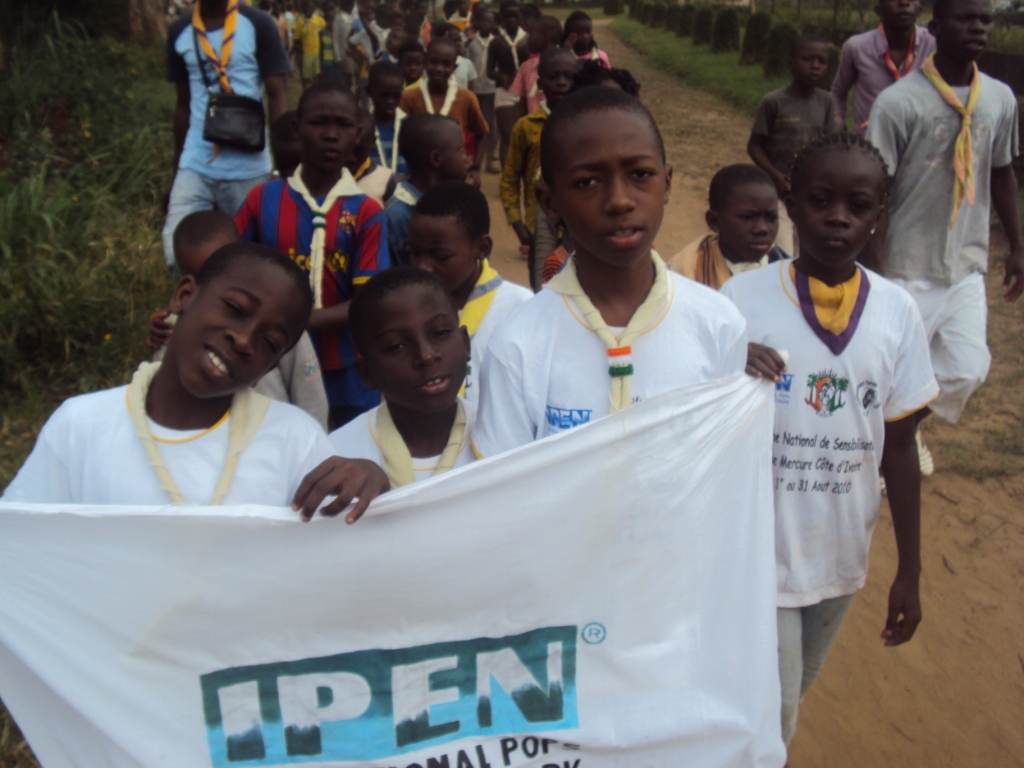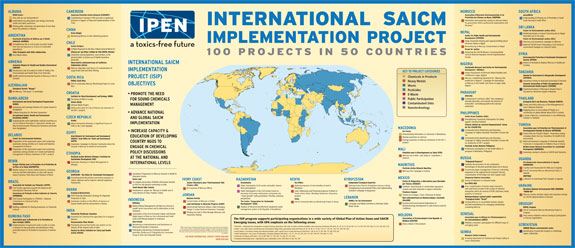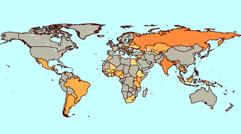IPEN launched the International SAICM Implementation Project (ISIP) in 2010 to assist in implementing the Strategic Approach to International Chemicals Management (SAICM). SAICM is an international policy, strategy and global plan of action that seeks to minimize significant harms to human health and the environment from the manufacture and use of chemicals by 2020.
Public interest non-governmental organizations (NGOs) and civil society organizations (CSOs) are recognized by the SAICM process as having important roles to play in successful SAICM implementation. Through ISIP, IPEN mobilized resources for strategic, small-scale activities in developing countries and countries with economies in transition in the areas of pesticides, wastes, heavy metals, public participation, chemicals in products, and contaminated sites. ISIP built on the 2008-2009 SAICM Global Outreach Campaign to raise awareness about SAICM and strengthen collaboration among the public interest, health and labor sectors.
This program resulted in more than 100 implementation activities in 50 countries, including projects that:
- Raised awareness about serious threats to public health and the environment associated with the unsound production, use and disposal of potentially toxic chemicals and wastes.
- Made recommendations to all relevant national policy sectors (health, agriculture, labor, environment) for sustainable development
- Engaged civil society in the promotion of international policy change, national legislative, regulatory and institutional reforms and other actions aimed at advancing chemical safety objectives
- Built capacity and developed educational tools and activities that enable NGOs in developing countries and countries with economies in transition to engage with their national authorities on chemical policy discussion relevant at both the national and international levels
ISIP Activities
The ISIP program supports Participating Organizations in a wide variety of Global Plan of Action (GPA) items and SAICM Emerging issues, with GPA emphasis on the following areas:
- Pesticides – integrated pest management, ecological farming, alternatives, FAO code of conduct, obsolete stockpiles, and community monitoring
- Waste – zero waste, dioxins, incineration and co-incineration, illegal trade, and medical waste
- Heavy Metals – in products, mining, and industrial pollution, with a specific focus on lead and mercury
- Public Participation -- law, access to information, and policy dialogue
- Chemicals in Products
- Hotspots/contaminated areas – especially for poor communities at risk.

ISIP 2010-2011 Activities
ISIP projects that have been completed to date are highlighted on the map below. The IPEN ISIP Map was presented at the 3rd International Conference on Chemicals Management in Nairobi, Kenya in September, 2012.






